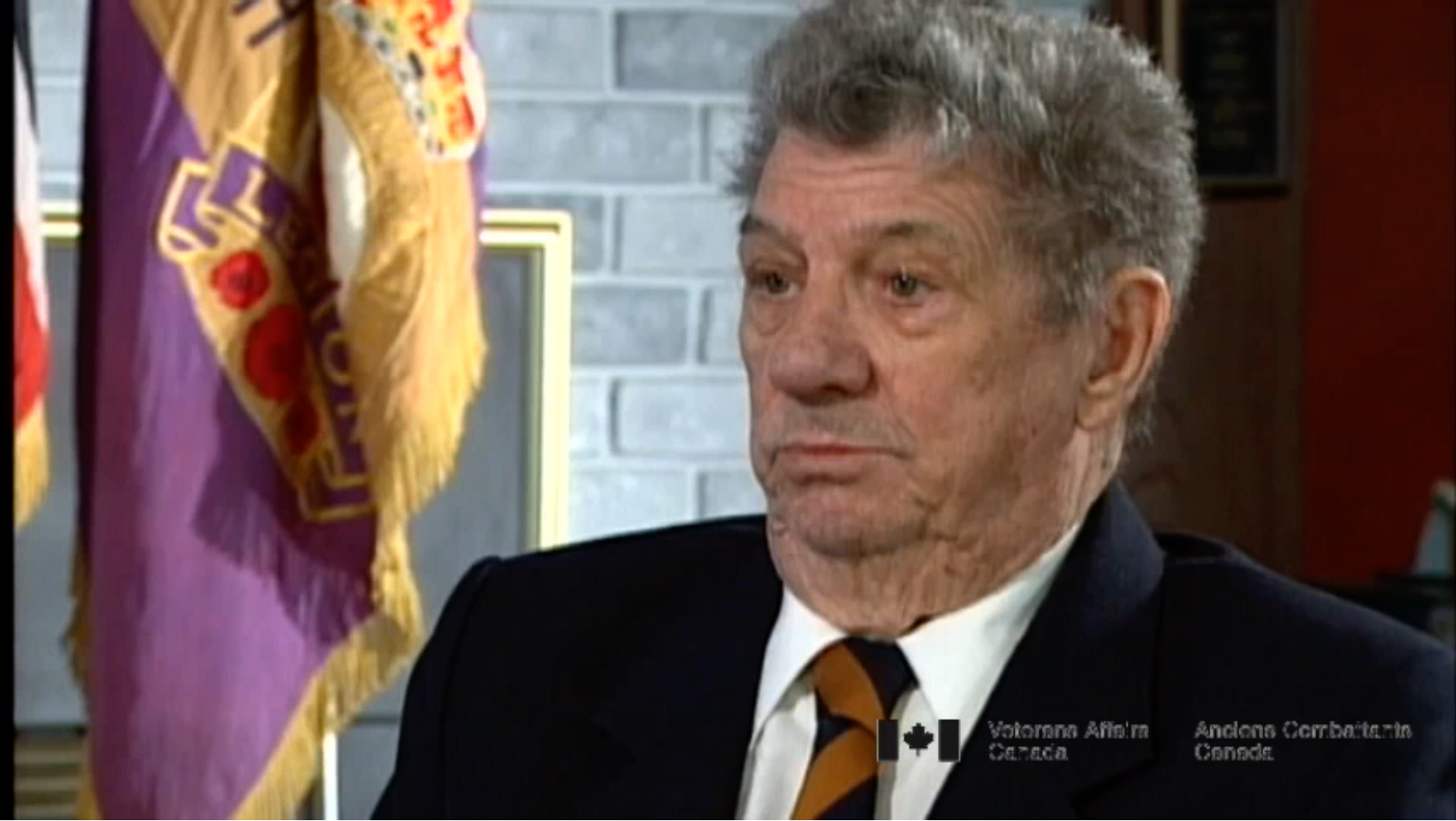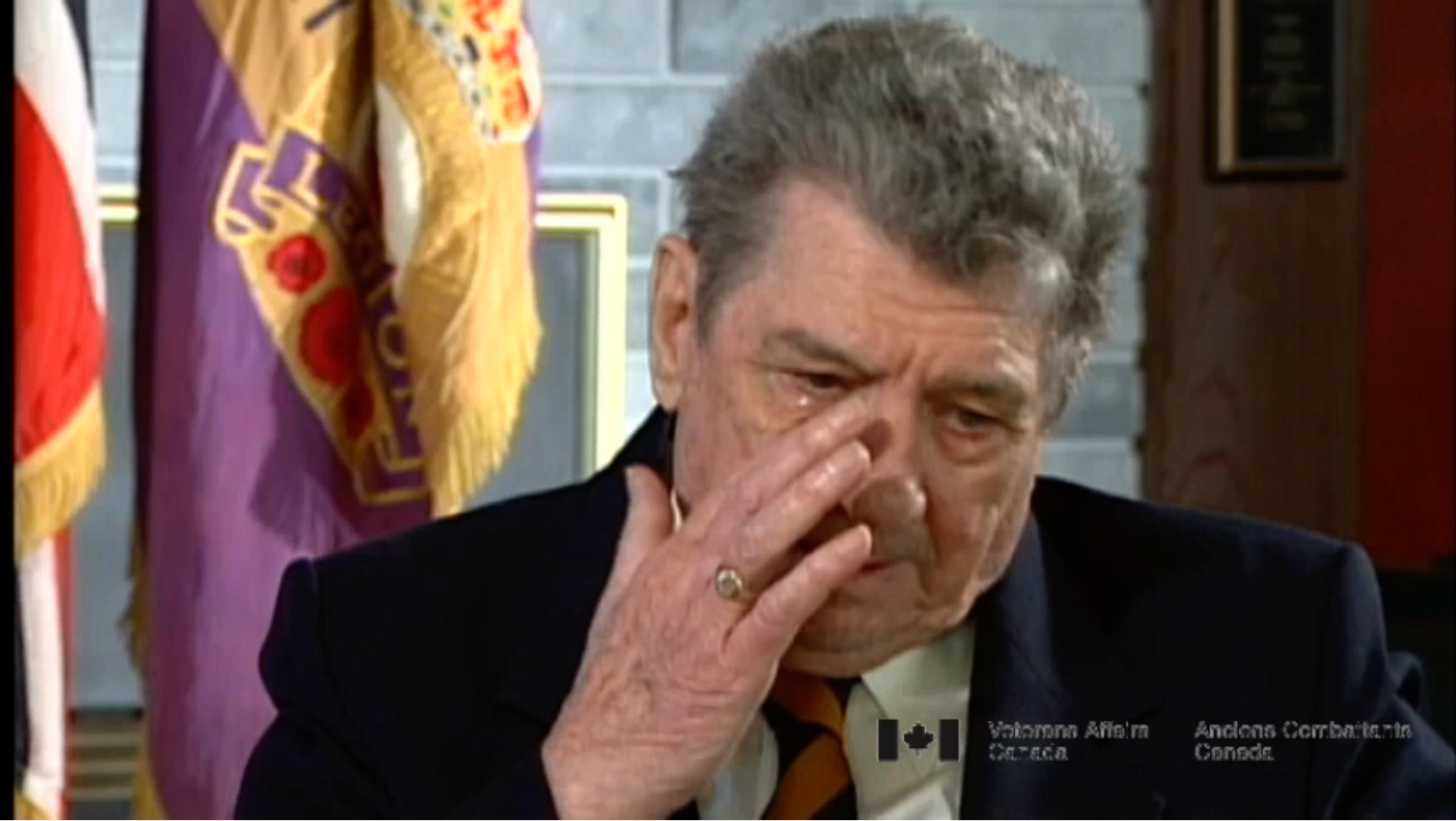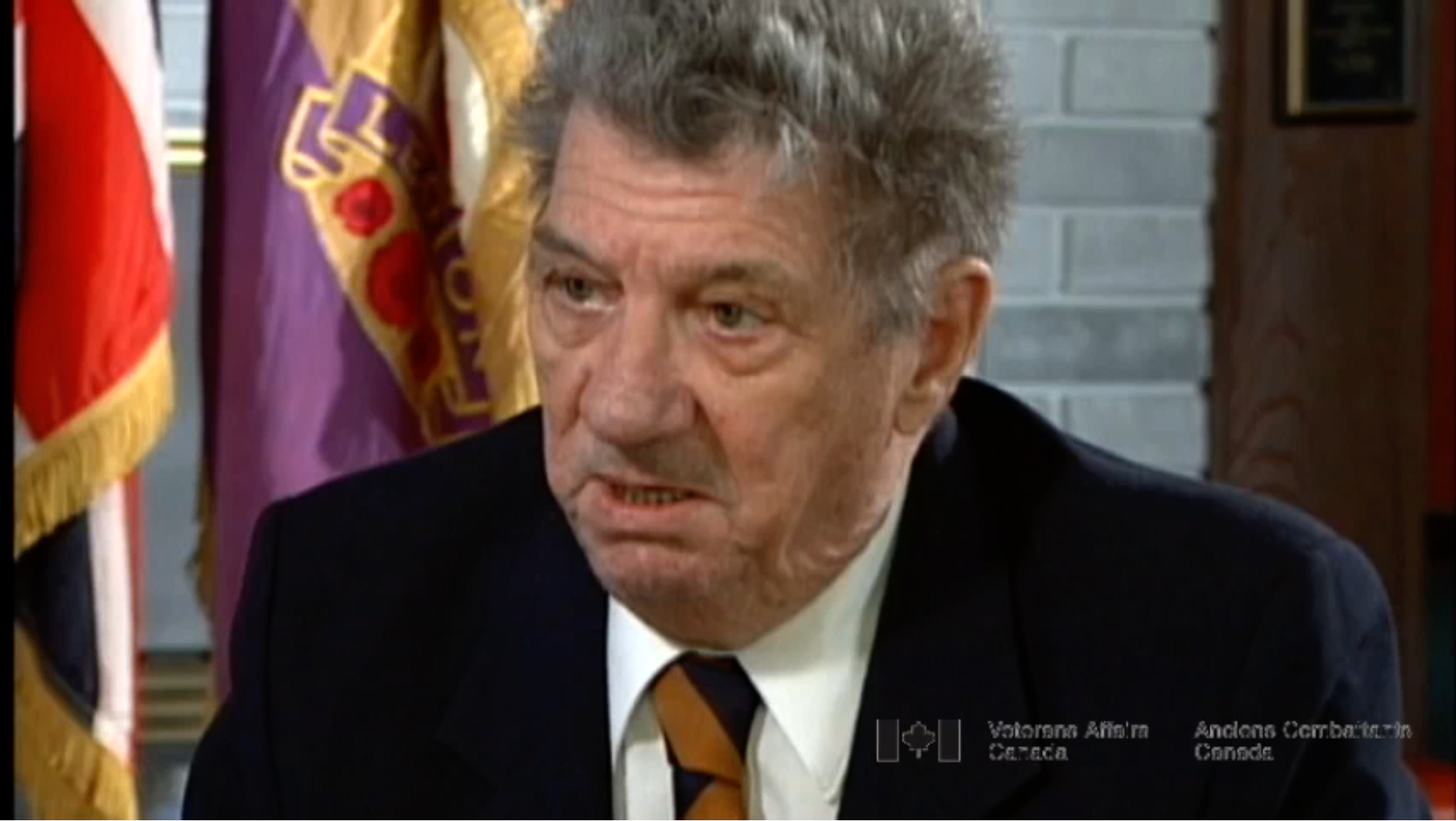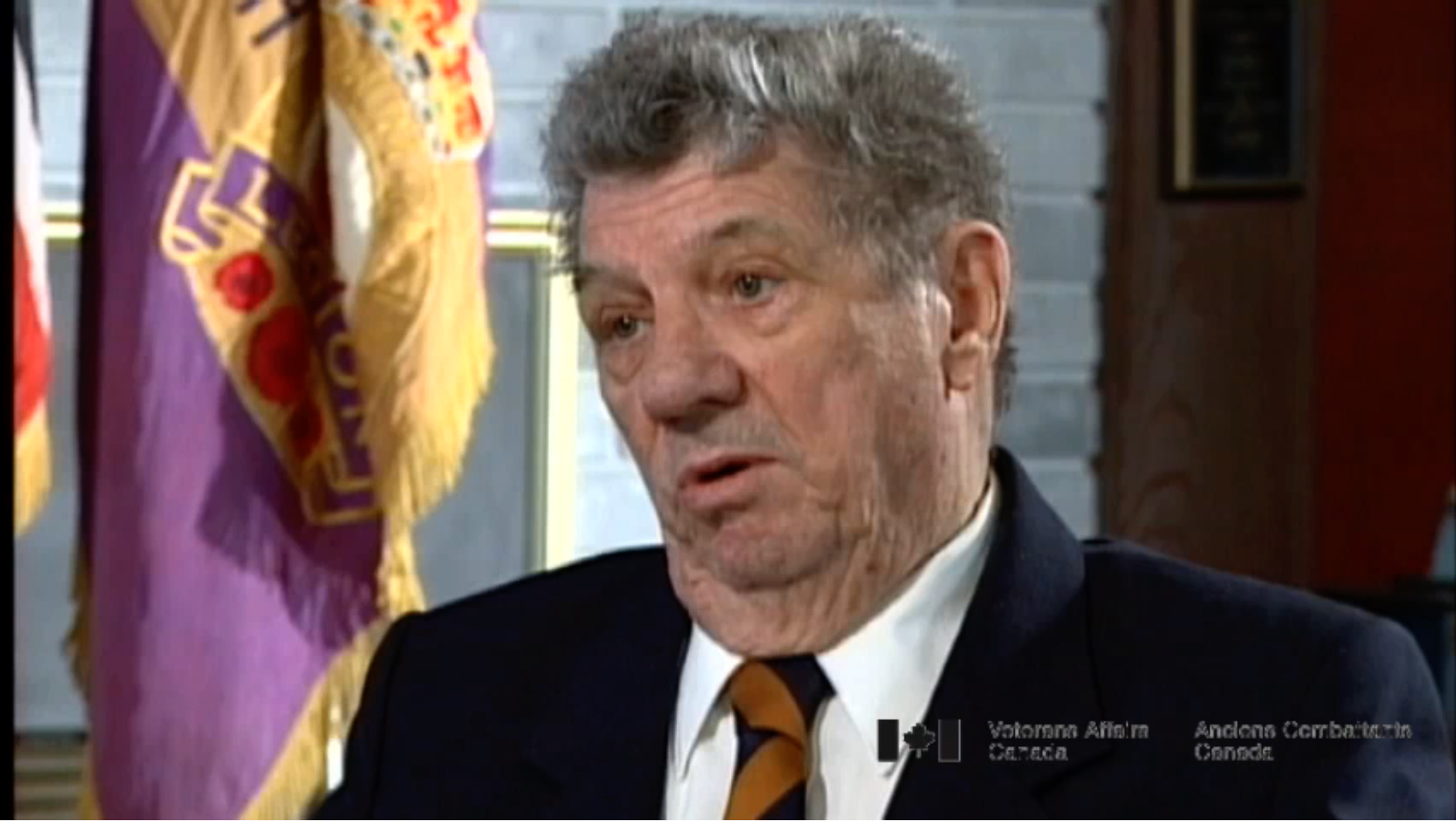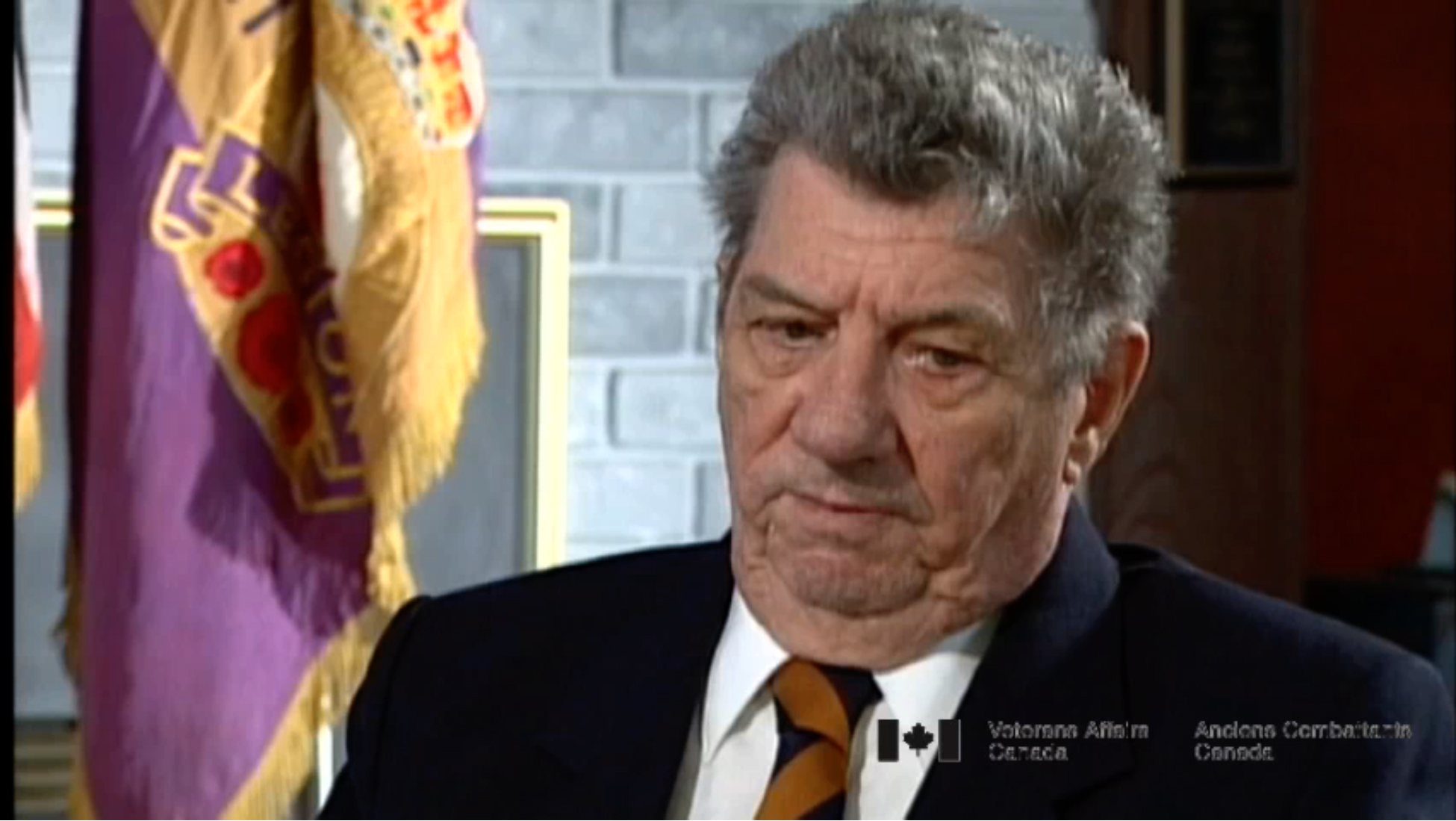I've never, the bombers were banging London, bad, eh. Oh God
it was, but we didn't feel it at the time, they used to come at
night. So anyway we were there, and boy, oh boy, they started
pounding, "bang, bang". And the first time she hit was way down
the street, blew the whole street I think and the explosion and
that and the two of us dived, dived on the floor eh, underneath
the sink, two of us underneath the sink and there was my aunt
up walking around, you know, "Holy Christ,". I was yelling to
her to get down but she was so used to it, you know she was just
as calm as anything and we felt some foolish, the two of us
underneath the sink, crowded down there, yeah.
So that was my first impression and I tell you now I've always,
always looked back on it, eh. I've never seen violence in her,
growing up and that, not like that anyway, you might see a
little fight or something but that it was, it was scary.
You know, I was just probably wondering to myself, "Well if I
did that, crowd under the sink and she up there walking around,
what the hell am I going to do when I get there?" You know,
"What kind of a soldier am I gonna, gonna be?" But it was, I
guess you just got into it, you got a little, you just and you
learnt, you learnt in a hurry, I'll tell you that. How to run,
jump or lie down, or you gotta duck or anything else, you learnt
all of it in a hurry because after a while you got the, the
sounds eh. The sounds of the shells and that, you knew them,
which was, bigger ones, smaller ones you know you got to know it
and it helped you to stay alive, eh. When to duck or jump
or we knew when one was coming near so forth
and so on, eh, but it took a while to get used to it, eh.
Wouldn't take chances, eh. Any, when you're young you would be
taking chances I guess but after a while you just,
you did your job and you weren't doing anything out of the
ordinary so you tried to, like I say you learnt how to duck, you
learn how to jump or anything but and you learnt to look and see
if you got to move up someplace in the lines you really took the
time to survey it and find out what the hell it was all about
but any other time you'd probably run up the road or run into
buildings or something. But once these, a lot of these buildings
Jerry had these small mines, shoe mines and that, eh, so you had
to learn, eh. Cause a lot of fellows just, were killed that
way that they, they didn't hesitate and they weren't told
probably too that this was, there could be a dangerous building
or something, eh. Oh yeah. But you did it, that's the
way you went



